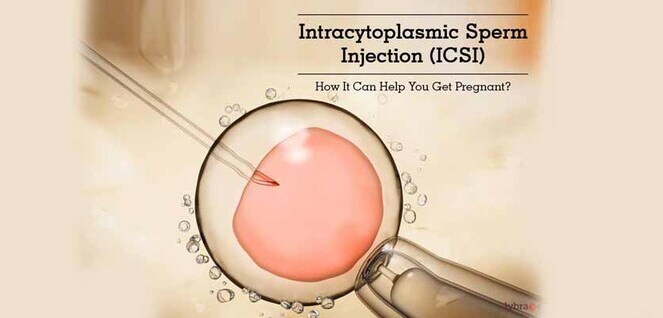Intracytoplasmic sperm injection (ICSI) is typically considered when a couple is struggling with infertility and other forms of assisted reproductive technology (ART) have not been successful. ICSI is often used when there are problems with the sperm, such as low sperm count or poor sperm motility. It may also be used when there are issues with the egg, such as poor egg quality. By directly injecting a sperm into an egg, ICSI can bypass these issues and increase the chances of fertilization and pregnancy.
Intracytoplasmic sperm injection (ICSI) is typically performed in a fertility clinic, and usually requires a woman to undergo ovarian stimulation to produce multiple eggs. The process of ICSI is as follows:
- Egg retrieval: The eggs are retrieved from the woman’s ovaries using a needle and ultrasound guidance. This is done under sedation or anesthesia.
- Sperm collection: The sperm is collected from the man either by ejaculation or by a surgical procedure called a testicular sperm extraction (TESE) if the man has a low sperm count or no sperm in his semen.
- Insemination: The sperm and eggs are then brought together in a laboratory dish. Using a fine glass needle, a single sperm is then injected directly into the egg.
- Fertilization: The eggs are then left to fertilize for about 18-20 hours in the laboratory.
- Embryo transfer: After fertilization, the embryos are transferred to the woman’s uterus. The number of embryos transferred depends on a variety of factors, including the woman’s age, the quality of the embryos, and the woman’s medical history.
- Pregnancy test: A pregnancy test is usually done about two weeks after the embryo transfer to confirm whether or not the woman is pregnant.
It’s important to note that ICSI is a complex procedure and requires trained professionals to perform it. It’s also important to note that ICSI is not a guarantee of pregnancy and other factors such as the age of the couple, the quality of the embryos, the woman’s medical history and the cause of infertility play a role in the success of the treatment.

